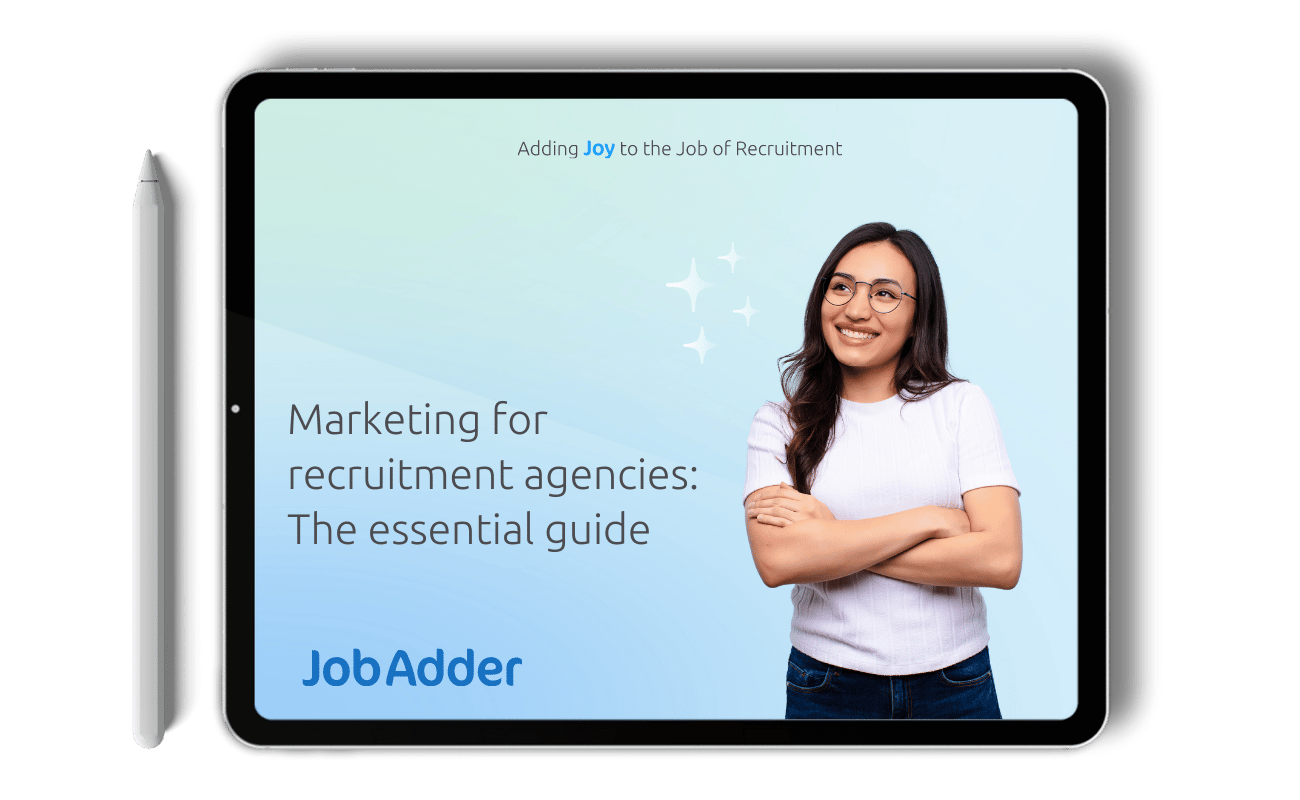Recruitment Blog
The Ultimate SEO guide for recruiters

As a recruiter, reaching the right audience of employers and job-hunters is essential to finding clients and hiring the best candidates for their needs. What many recruitment agencies don’t know, however, is that a great SEO strategy is the most powerful way to do this in 2020.
As the founder and Managing Director of Melbourne-based digital marketing agency SIXGUN, my team and I have worked with many recruitment clients whose move into more innovative marketing approaches has completely revolutionised their success. By creating a tailored SEO campaign, these clients have established a long-term strategy that goes beyond job boards and career sites.
Whether you’re familiar with Search Engine Optimisation (SEO) or have never even heard of the term before, understanding how you can tailor a strategy to suit your recruitment services is essential. Here are a few of the key factors that have allowed the SIXGUN team to revolutionise the way our recruiter clients achieve digital marketing success.
DOWNLOAD OUR FREE EBOOK: Marketing for recruitment agencies: The essential guide
1. Create landing pages for your services and specialities
In our world of instant solutions, people use Google to answer their questions or problems in a matter of seconds. This is the focal point for the entire philosophy of Search Engine Optimisation; in order to reach as many potential clients as possible, you have to think one-step ahead of your client and anticipate what they will be searching for.
This is why the landing pages you choose for your SEO strategy are fundamental to the success of your campaign. You need to ask yourself what pages on your website offer the most value to your customers – i.e. what do they come to your site looking for? Those are your landing pages, as they offer the most value to your clients and can be most strategically optimised to maximise traffic and conversions.
For the recruitment industry, the most common Google searches are usually centred around specific job titles (‘accounting jobs in Sydney’), industry-specialised services (‘medical recruitment agency’) or HR services (‘Melbourne HR services’). For this reason, pages on job categories, industry specialisation and HR solutions are ideal landing page options. By using a combination of backend tactics, powerful keywords and high-quality content, these pages can shoot straight to the top of common web searches and become the main entry point of traffic to your website.
2. Target specialised keywords
If landing pages are the home of your SEO strategy, keywords are the roads that lead to your door. As I mentioned previously, Google searches are the primary way that people find fast answers to their questions. By choosing the right keywords for your particular services or industry, you can get one step further to ensuring that when someone searches ‘accounting recruitment Melbourne’, your website is one of the first they see.
There are two types of keywords for you to choose from; general and specialised. The latter is what you want to focus on, as they will deliver more qualified leads to your website, therefore resulting in more conversions.
Let’s say you’re a recruitment agency for creative professionals in Melbourne. There are three key demographics you should be targeting with your keywords; those looking for your service (recruitment), those who work in a creative industry, and those who live in Melbourne. Even if it seems like a popular search on the surface, a broad keyword such as ‘recruitment agency’ is unlikely to guide qualified leads to your website. The truth is that these people could live anywhere and be looking for recruitment in any industry, so the chances of reaching the right traffic for your niche services are slim. Instead, targeting specialised keywords such as ‘creative recruiters Melbourne’ is bound to be a much more lucrative avenue than a general term such as ‘recruitment agency’.
Not only does this approach narrow down the number of websites you have to compete with to achieve a high ranking, but it ensures that you’re getting eyes on your landing pages from the right people.
3. Focus on writing high quality content
Your choice of keywords may get visitors to your website, but the content is a major part of what makes them stay. Writing high quality content that is easy to read, answers the audience’s key questions and reflects the tone of voice of your business is essential for any successful SEO strategy.
There are a few things that all good content should do:
- Clearly answer common questions that customers have about your recruitment services, your process or the positions you have vacant.
- Incorporate H1’s, H2’s and H3’s to bolster your target keywords and make your content easy to read.
- Contain strong Calls to Action [CTA’s] that encourages conversion from visitor to customer.
Writing great SEO content for your website can feel a little like a balancing act; you have to have enough words, but not too many; you need to include your target keywords, but not in a way that looks forced. For service pages, 500 words of unique, well-written content is ideal. For product pages, you can get away with having a lower word count. Google’s ranking algorithm favours pages that are well-written and provide a valuable experience for visitors. On the flip side, pages that use duplicate content (i.e. copy and pasted text from other webpages) or that contain over-optimised keywords are not looked on favourably.
While you may be tempted to sit down at your computer and write your own pages, it’s important that you only do so if you’re confident in your ability to create high-quality copy. If not, I recommend hiring a professional SEO agency or copywriter to help you out. As a crucial element in the SEO process, consider it an investment in the long-term strategy of your website.
4. Build your backlink profile
Backlinks are the unsung heroes of SEO campaigns; incredibly important but often forgotten. A ‘backlink profile’ refers to the number of high-quality domains that link back to your landing pages. This is important because, in the eyes of Google, quality backlinks are a status symbol that will separate your website from the countless others in the recruitment industry. Building your backlink profile is essential to improving your search engine ranking as it tells Google that you are a trustworthy domain with authority. Think of it like a glowing recommendation from a powerful friend.
The question, of course, is how can you generate high quality backlinks that will benefit your ranking? While there are a few different approaches, one of the most straight-forward yet effective is reaching out to industry connections and asking them to incorporate backlinks to your pages from their website.
You can do this by:
– Asking clients to list you on their ‘partners’ page.
– Writing guest blogs or articles for established websites with high domain authority.
– Contact bloggers or journalists and speak to them about including a link to your website in a relevant article.
As a recruitment agency, you’re likely in a unique position where you can leverage your connections to other established businesses to generate backlinks and bolster your SEO. While this may seem intimidating at first, the reality is that a few simple links from regular clients can make a world of difference for your campaign, so it’s worth reaching out and giving it a shot.
5. Get ready for Google For Jobs
Google For Jobs hasn’t officially launched in Australia just yet (and we have already been waiting quite a while!), but that shouldn’t stop you from preparing to take full advantage of its features once it does. Already up and running in the U.S, Canada, India and Spain, this new feature will aggregate listings from recruitment sites and job boards and display them directly in the Google search results page for job hunters to see.
When Google For Jobs finally launches in Australia, the recruiters who have done their homework and prepared ahead of time will undoubtedly be the ones reap the benefits. To get your website ready, it’s important to understand the key characteristics that will make your listings rank highly. This includes:
- Ensuring that key pieces of information on each listing – such as job title, industry, location and salary – are prominent and easily identifiable.
- Modify your website’s schema markup, sitemap and RSS feed to be in line with what Google For Jobs requires from its listings.
- Make sure your listings are accessible via desktop and mobile as well as on all the prominent internet browsers (Firefox, Safari, Chrome).
- Make sure you are using best-practice SEO techniques on each listing page, including optimising for location and creating reliable tags, meta descriptions, titles and URL’s.
The benefits of Google for Jobs are huge. Having already launched in the U.S, recruiters have seen a massive rise in application numbers due to the increased visibility of the listings on Google’s search result page. To make things even better, the organic ranking process of this feature means recruiters can save money on advertising while still increasing traffic to their listing. With so many benefits from this powerful new tool, getting your site Google-ready will ensure that you’re prepared for a potential 2020 release in Australia.
Is your recruitment marketing in good shape?
SEO can be a tricky beast to tame, but building a successful strategy is a non-negotiable in a world where people want to hire and apply for jobs as quickly and easily as possible. A hard-hitting strategy can catapult your agency towards success, so make sure you’re incorporating the above essentials into your campaign.
Marketing your recruitment agency doesn’t have to be a struggle. Read our handy guide.

Related blog posts

To excel in the competition for top talent, proactive workforce planning is essential. Traditional methods struggle to adapt to evolving …
Ready to get started?
Talk to one of our friendly team members


